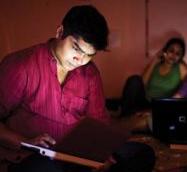Source: The Guardian Unlimited
On the internet, as elsewhere, information is money, and information is power. So why have we given it away so lightly?
Something extraordinary has taken place over the last few years. Voluntarily, and without coercion or, indeed, payment, internet users have handed over vast amounts of highly personal data – their preferences, where they live, who their friends are and what they do – to private companies, whose primary goal is to profit from that data. And every day, we hand over more, willingly. read more



